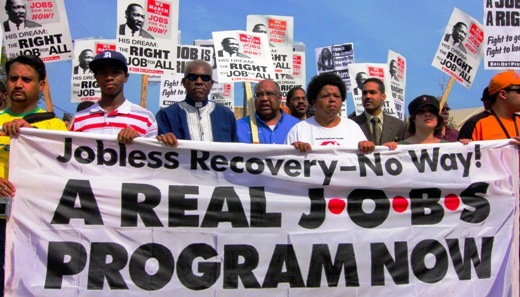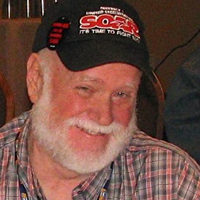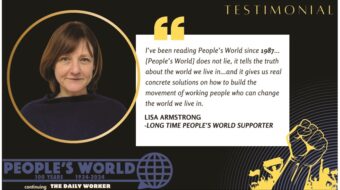
At least 25 coal miners die in a corporate neglected, unsafe, Massey mine in Montcoal, W Va. On average 16 workers a day lose their lives due to corporate negligence and outright criminal refusal to take critical health and safety measures to protect workers.
Every week now 200,000 plus long term unemployed and their families lose unemployment compensation extensions because a rightwing Republican hack in Congress blocked Congressional action.
And while thousands of unemployed a week lose health care coverage, Cobra subsidies that help the unemployed continue coverage terminated by their employers are also halted by Congressional inaction.
In 2009 about 2.8 million families’ homes were foreclosed on by banks and mortgage companies. In 2010 another 3.5 million families are expected to face foreclosure.
Close to 50 million people were living in “food insecure homes” (translation: don’t know where their next meal was coming from) according to a Department of Agriculture study in 2008. That study was based on statistics taken before the beginning of the “Great Recession.” Feeding America, a nationwide network of food pantries, reports a 46% increase in the number of people it feeds since 2006.
Not only have hundreds of thousands watched their pension plans go down the drain, but now the news that huge corporate pension funds are greatly underfunded and could soon go broke ruining hundreds of thousands more seniors.
Then there is public education, local and state services, failing infrastructure, heightened racist, gender, sexual orientation and anti-immigrant discrimination, inaction on global warming – and on and on.
Yes there is a rising tide of anger in the country.
Years ago when I first moved to Chicago, I had many long conversations with Claude Lightfoot. Claude was a great leader of the Communist Party who led many mass struggles in Chicago. He led unemployed councils in stopping evictions and putting furniture back in people’s homes. He led hunger marches. He fought for jobs and relief. He led demonstrations to save the Scottsboro Boys from lynching, legal and otherwise. He mobilized for picket lines and strikes. He was a great tribune of the working class.
And I wanted us to learn from his vast experience. Thousands of my fellow steelworkers were watching our plants close and our jobs disappear. Millions of workers were losing their jobs. Anger and frustration was rising. “Claude, we need to fightback. We need hundreds of thousands marching in the streets like the great unemployed march in Chicago in 1930.”
Claude laughed. He told me that many of my generation looked at the struggles during and after the Great Depression as one rising tide of struggle that culminated in the New Deal, the rise of the CIO and the defeat of fascism. “It doesn’t work that way.” Claude patiently explained all the hard organizing work and coalition building that went into every action. He said that they organized dozens of marches to City Hall for relief. Lots of times we were lucky to get 50 people. We knew people were angry but we sometimes couldn’t get a dozen people together for a meeting.
Claude went on: Sometimes I think your generation wants instant gratification. Just raise the red flag and masses will respond. It doesn’t work that way. You never know what the spark will be that sets a mass upsurge in motion. If misery and agitation alone were enough then we’d have had full employment, and social and economic justice a long time ago. He also explained that every mass upsurge didn’t lead to a ever growing tide of struggle. There were lots of ups and downs. There were lots of set-backs and ebb times.
Great counsel for today, if you think about some of our recent experiences. Many were surprised at the massive turn out for the immigrant rights march on May Day 2006. It was enormous. In 2008 a gigantic upsurge elected Barack Obama president,and scored a huge victory against the ultra right. In 2008 workers took over and occupied the Republic Doors and Windows plant in Chicago to demand their back pay and fight for their jobs. But none of these fights leads to an unending upward spiral of struggle and victories. Like Claude said, “It doesn’t work that way.”
But there is a rising tide of anger that is feeding a rising tide of struggle. Numbers and drama are not always the only or best indicator of where things are going. Anger doesn’t immediately lead to action. The first impulse for many hit by unemployment and other shocks of the economic crisis is to turn inward, to get angry at the wrong things and wrong people. That’s where organizing comes in and patiently to explain. It is when we fully realize that millions are in the same situation, that it is the fault of a system and policies and wrong priorities, that we are ready for mass action.
Meanwhile, meetings are getting bigger. Demonstrations are getting more militant. Outrage is growing. And working people are reaching a tipping point. Change is gonna come!
Photo: During the G-20 meeting in Pittsburgh last fall, many marched for jobs and economic justice. Scott Marshall/PW












Comments